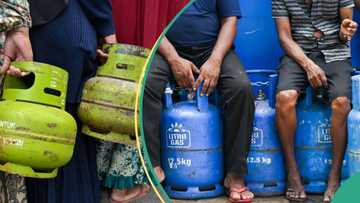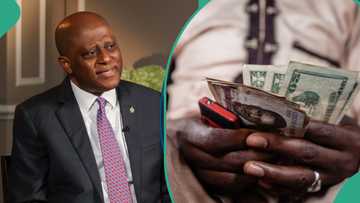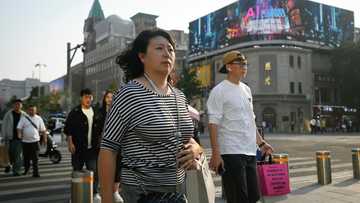Experts react to increase in interest rate, names 4 consequences
- CBN has again raised the benchmark interest rate by a half percentage point to 27.25 percent
- The continued rise in the interest rate has consequences on businesses with households
- Experts said raising the lending rates is geared towards slowing rising inflation
Legit.ng journalist Zainab Iwayemi has over 3-year-experience covering the Economy, Technology, and Capital Market.
In spite of decreasing inflation, the Central Bank of Nigeria (CBN) has increased the benchmark interest rate for the fifth time in a row, this time by 0.5 percentage points to 27.25 percent.

Source: UGC
To date, the CBN has increased the monetary policy rate—a measure used by decision-makers to manage the amount of money in the economy—by a total of 850 basis points from 18.75 percent in July of last year, to the highest level ever noted in the nation.

Read also
Group reacts as CBN adjusts changes to interest rate for customers of Access, UBA, GTB, others
Despite being intended to counteract inflationary pressures and stabilize the economy, the ongoing increase in interest rates has a significant impact on businesses, as households are also affected by its passthrough effect.
Experts have talked about some consequenvces of the CBN’s action in a BusinessDay article.
Raising MPR halts soaring inflation
The CBN is keeping a tighter monetary policy in place to contain the persistently rising inflation by raising the MPR.
The objective of high interest rates is to decrease the amount of money in circulation in order to limit inflation, according to Marvelous Ige, a financial analyst with the Lagos-based investment business Commercio Partners. Inflation is defined as "too much money pursuing few goods."
Samson G Simon, chief economist at ARKK Economics and Data Limited added,
“The CBN raises interest rates to tackle inflation, hence lessening cost of living crisis. The approach also reduces frivolous spending and protect or restore purchasing power,”
Reduction in business expansion and loss of jobs
As financial circumstances tighten, financing will become more accessible at higher interest rates, which will stifle company growth and raise the already high unemployment rate.
Ige said
“By hiking inflation rates, credits are discouraged since they are now more costly to obtain. However, what really happens is that certain manufacturers go on with obtaining credits/loans at high costs.
“The increased cost of borrowing will be passed down to final consumers in form of higher prices,”
“For consumers, higher costs of borrowing means reduced access to finance to fund their personal demands/projects.” the finance expert added.
Increase FX inflows and stable naira
A higher interest rate environment is expected to drive in dollar liquidity as investors will be in search for a market that gives higher returns on investment.
This inflows will ensure the stability of the naira and improves consumers’ spending power.
Nigeria’s naira has suffered a 70 percent devaluation since it was allowed to trade freely and made its value to be determined by market forces last June.
Simon said,
“The continuous hike in MPR should increase FX inflows from foreign investments and improve the value of the naira or at least stabilise its value.”
He however added that with an increased monetary rate environment, cases of non-performing loans and payment defaults become higher.
Reduce business expansion and job loss
Adedotun Adesile, a US-based finance analyst clarified that since savings accounts and fixed deposits earn greater income, a climate with high interest rates results in higher returns on deposits.
“By hiking inflation rates, credits are discouraged since they are now more costly to obtain. However, what really happens is that certain manufacturers go on with obtaining credits/loans at high costs.
“The increased cost of borrowing will be passed down to final consumers in form of higher prices,” Ige said.
“For consumers, higher costs of borrowing means reduced access to finance to fund their personal demands/projects.” the finance expert added.
Group Reacts as CBN Adjusts Changes to Interest Rate
Legit.ng reported that following the decision of the Monetary Policy Committee of the Central Bank of Nigeria to raise interest rates, the organised private sector is worried that this could make bad loans in different deposit money banks worse.
This comes after the MPC decided on Tuesday, September 24, 2024 to raise the monetary policy rate—which sets the benchmark interest rate—to 27.25 percent for the fifth time this year.
The Association of Small Business Owners of Nigeria's national president, Dr Femi Egbesola, expressed disappointment that the increase was taking place again
PAY ATTENTION: Сheck out news that is picked exactly for YOU ➡️ find the “Recommended for you” block on the home page and enjoy!
Source: Legit.ng





